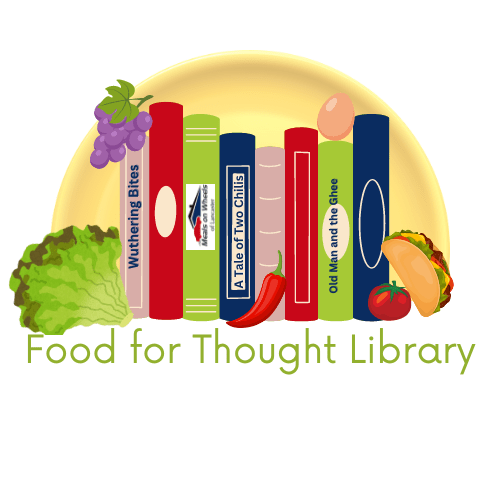
Our newest team member, Mark Harris, also happens to preach as a part time pastor. His recent sermon on Luke’s Beatitudes preached on February 17, 2019 has us thinking differently about our work delivering nutrition and relationship to our homebound clients. We owe so much to the love and gratitude of our clients, who enrich our lives. Mark’s sermon is as follows:
Blessed are you. You who are poor and hungry, weeping and hated, you’re blessed. This is not how most of us typically think of things. I don’t recall many of us who work the free breakfasts saying, “Wow! These poor hungry folks sure are blessed.” How many among you have, during the leaner times of your life, have said to yourself, “Golly, I sure am feeling blessed!”
Luke’s Beatitudes are sometimes interpreted to mean that those Jesus is speaking of will be blessed in the future, and I get that. But strictly, that’s not what it says. He did not say, “You who are hungry now will be blessed later when you are fed.” Instead, “Blessed are you who are hungry NOW, for you will be fed.”
It’s easy to see that those who are now poor will be much happier once their difficulties have ended, but what does it mean to identify them as specifically blessed while in the midst of their poverty, their hunger, their weeping?
Is there meaning in that nuance? I think that there is.
There’s an expression I think I’ve used from the pulpit before, that I will remind you of: What is the best spice?
Anyone?
Hunger! Hunger is the best spice. Now that’s not just a banal way of saying that food tastes good to hungry people. It’s deeper than that. Hunger can be a nasty demon. It can gnaw its way right out of your belly, and steal away your attention, your patience, your feeling of safety. Feeding someone who is hungry not only fills their belly, it restores them to themselves. It grants self-worth, the first step towards true dignity. And it creates gratitude, not only for the food and the servers, but for the restoration of the possibility of a world without hunger.
Are there byproducts of that gratitude? How many of those who make and serve those meals find themselves at their own tables, taking part in meals they are more grateful for than they might have been?
I helped a woman recently get a piece of paper she needed from a government agency. She had already gone through all the steps to get the piece of paper and had called back to check up on it as well but had been waiting for weeks. I followed up with her, calling the agency, and after being passed around on the phone several times, reached someone who explained to me that “there was a process.” While I appreciated the process, this piece of paper was required in order to get needed medical care. I explained this and asked for expediency. The paper was in her mailbox in three days. And she was full of gratitude.
But what gift did I give? I leant to her my deep voice, and my educated grammar. I used on her behalf my white male privilege, and my title of Pastor. None of these things should have made a bit of difference, but in truth they made all the difference in getting what she needed. So, I learned something about injustice, and about what I can do about it.
A Pastor friend of mine was visiting one of her congregants whose wife is in the end stages of cancer. They talked about how his wife had been such a steadfast force in his life through thick and thin, and had endured hardships and changes with grace, supporting him all the while. On the way home from the visit, she told me that she had to pull over to calm her own weeping. The visit was sad and difficult, yes. But also, what she realized driving away was how much her own spouse fit the same description, and how little she had done to acknowledge and recognize that reality. This realization coupled with the loss and mourning she had witnessed brought her to tears for the amount of love she felt for all of those in this interaction.
Many people would identify the “blessed” people in those three stories as the people who feed and aid and comfort. But I think I’m with Jesus on this one. I think the blessed ones are the ones who we would identify as getting the help. And I am not sure they’re the ones getting the most help, either.
Who can teach gratitude better than the hungry when fed? Who can teach better the worth of justice than the poor who suffer injustice? Who can teach us the value of love better than those who mourn?
By our baptisms, and by the communal promise of the bread and wine we share, we are called to be in service to each other, and to all humanity. Jesus taught on the day before he was arrested, serving his disciples at the table and washing their feet. I have often heard of the ideal of Jesus being said to be equality under God. I disagree. By His example, Jesus calls each of us to be somehow mysteriously always in service to the others around, and vice versa. This is another of the paradoxes I love so much. We are all asked to be below one another.
Do you believe it? Do you believe that we are called to be in service to each other, and to a path that leads towards mercy and justice and love?
If you do, and it is for you, as it is for me, one of your core beliefs, then we owe a deep debt of gratitude to all of those we help. What greater gift can you think of than offering someone confirmation of their most deeply held beliefs?
Jesus offers a vision of a world of reciprocal blessing. This is an example of what I mean by the Scriptures as a lens. Some would say that in Luke’s Beatitudes, Jesus is describing a world that could be, a vision of a future utopia. That is not what I see. I see Jesus redefining for us the world that is, the world all around us. I see the Beatitudes as an understanding of the world we inhabit as it was created, not as out human systems would tell us it is. We live in a world of reciprocal blessing, in which those who enact God’s Holy works of compassion, justice, mercy, and love are unbreakably bound to those with whom they enact them. For what you bind on Earth will be bound in heaven.
Luke’s Beatitudes also include the Woes, which sets them apart from Matthew’s Beatitudes considerably. These Woes are problematic for many pastors. I have heard a great deal of equivocation in sermons about the, “woe to you who are rich,” part. Especially from pastors who own private jets.
Consider the whole line, though. “But woe to you who are rich, for you have received your consolation.”
If your true consolation appears to you as a string of numbers preceded by a dollar sign, there might be a problem. If the spoils of wealth: private jets, multiple homes, and VIP treatment are how you confirm your worth, you may want to reconsider your path. For, from that perspective, can you even see the reciprocal blessings of the Holy Works of God?
If you have found your fill, and know no more hunger, will you turn away from the wonderful bounty of Christ’s table, where not just body, but soul is fed as well?
Of what use will your easy laughter be once you’ve witnessed the profound happiness that accompanies the soothing of mourning?
What path do you step off of when your concern is the opinions of others rather than what you know is righteous?
When I read the gospels, I do not see a vision of what could be, or a plan by which to change the world. When I read the gospels, I look through a glass that reveals to me the world all around me. I invite you to look with me, through this glass, and see the magical world of reciprocal blessings that surrounds us all. Look though it and watch the meaning of wealth and status and reputation dissolve and reveal the compassion and justice and love that are the true rewards, both in this world and in the next.
Amen.


